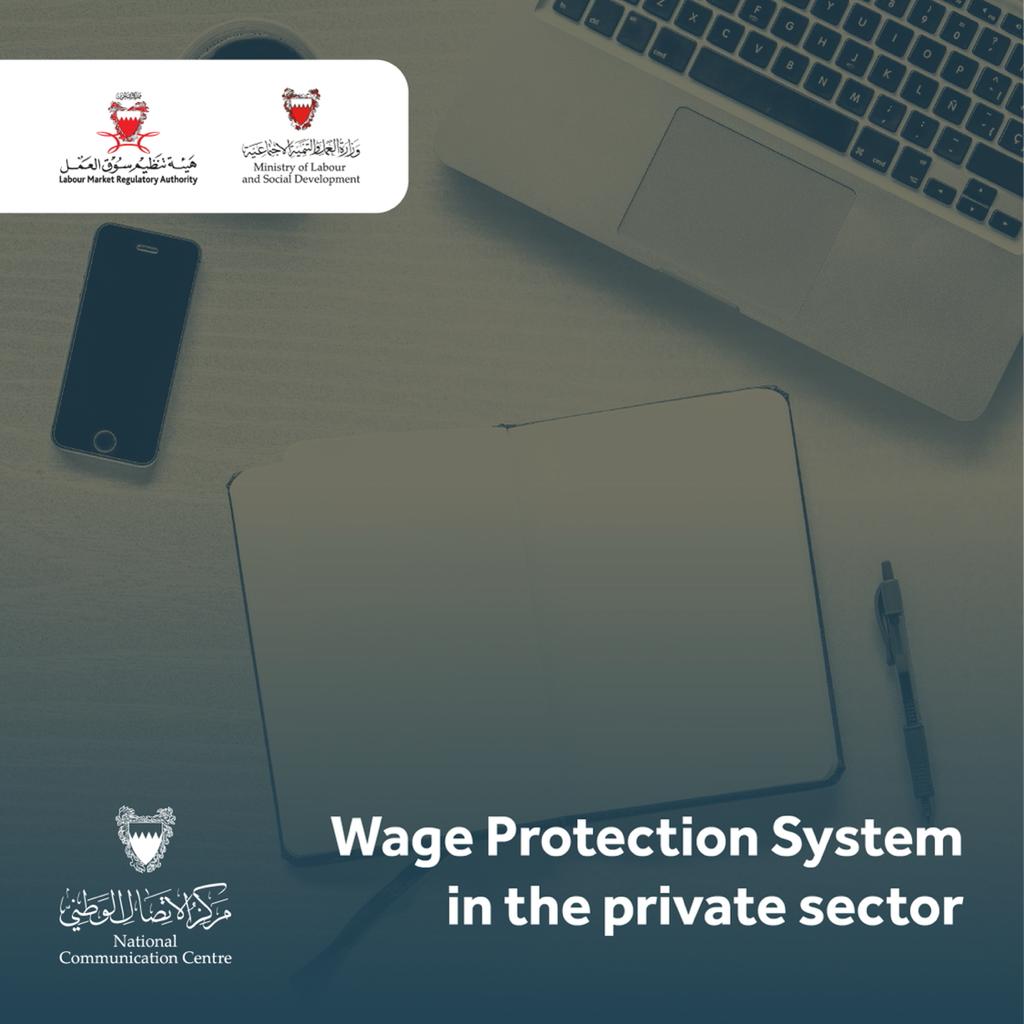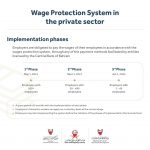Manama, Mar.27 (BNA): Following the Cabinet’s decision to approve the timeline for the implementation of the wage protection system, the Minister of Labour and Social Development, Chairman of the Board of the Labour Market Regulatory Authority, His Excellency Jameel bin Mohammed Ali Humaidan, issued Decision Number 22 for the year 2021 on the timeline of implementation of the wage protection system for workers in the private sector.
The decision aims to ensure the regular and timely transfer of workers’ wages to their bank accounts, in addition to enhancing transparency and oversight. It will also support the judicial authority in settling wage related disputes, and play a key role in mitigating adverse effects on the labour market, most notably irregular work.
The wage protection system will allow employers to maintain a professional and stable work environment by mitigating labor disputes, which will facilitate greater productivity and ensure the continuity of business growth.
Under this decision, the employer is obligated to pay the wages of his employees in accordance with the wages protection system, through any of the payment methods facilitated by entities licensed by the Central Bank of Bahrain.
The implementation of the decision will roll out in three phases, where the first phase will include employers who employ 500 workers or more, and it will begin on the first of May 2021.
The second phase includes employers who employ 50-499 workers, and its implementation is scheduled to begin on the first of September 2021, while the third phase includes employers who employ 1-49 workers, and is scheduled to begin on the first of January 2022.
A grace period of 6 months will be extended to employers that must apply the provisions of this decision, which will commence at the start of the implementation of each phase, and where no violations will be handed in the event practical challenges arise that hinder registration to the wage protection system in the specified dates for each category. Additionally, the wage protection system will be applied on a voluntary basis for employers of domestic workers at the current stage.
Commenting on this, the Minister of Labour and Social Development and Chairman of the Board of the Labour Market Regulatory Authority explained that this decision is testament to the Kingdom of Bahrain’s commitment to protecting the rights of workers, in line with its national legislations that stem from international labour standards.
In this regard, the Minister noted that that the decision focuses in particular on protecting worker’s financial rights which are governed by their contracts of employment.
The Minister further outlined that the decision contributes to strengthening concerted efforts aimed at combatting trafficking in persons and forced labor by preemptively identifying suspicious cases, stressing that failure to pay monthly salaries on time will result in penalties and legal procedures against violators, which will be applied gradually and according to the specified stages of implementation.
Humaidan went on to add that employers may start implementing the system before the initiation of the phases of implementation that include them, which have been set out in the decision.
On this note, he underlined that the gradual phasing of the implementation of the decision reflects the flexible nature of government policies pertaining to employers, which solve for sustaining economic growth, enhancing productivity, and ensuring the rights of all production entities.



